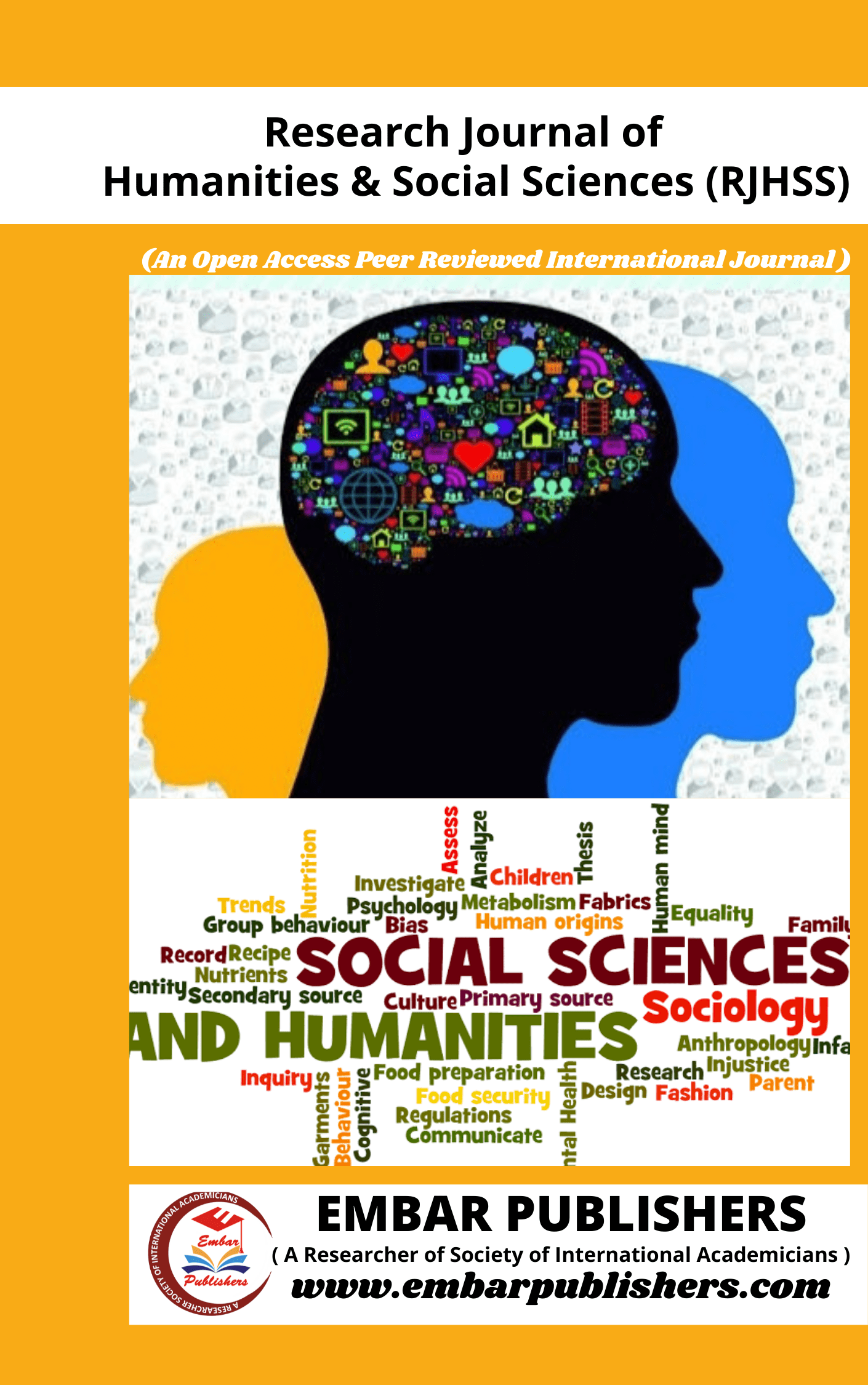
The Role of Islamic Pedagogy in Modern Educational Practices: Bridging Tradition and Innovation.
Abdullaev Anvar Atamuratovich
Nukus state institute, Nukus, Uzbekistan
DOI: https://doi.org/10.58924/rjhss.v3.iss5.p3
Published Date: 01-Jan, 1970
Keywords: Islamic Pedagogy, Modern Education, Curriculum Integration, Ethical Development, Educational Challenges
Abstract:
: The integration of Islamic pedagogy with modern educational practices presents a unique opportunity to create a comprehensive and inclusive learning environment that respects traditional values while embracing contemporary methodologies. This paper explores how principles of Islamic education?emphasizing moral and ethical development?can be effectively combined with current pedagogical approaches to enhance student learning and engagement. By examining successful case studies such as Al-Hekma International School and the International School of Islamabad, this study highlights practical strategies for integrating Islamic values into modern curricula and teaching methods. The paper also addresses the challenges associated with this integration, including cultural sensitivities, curriculum constraints, and resistance from stakeholders. Recommendations for overcoming these challenges include designing flexible curricula, investing in professional development for educators, engaging community stakeholders, and implementing ongoing evaluation practices. The findings suggest that a balanced approach, which respects both traditional and modern educational principles, can lead to a more holistic and effective educational experience.
References:
1. Al-Mansour, N., & Al-Shamrani, A. (2023). Integrating Islamic Pedagogy in Modern Education: Challenges and Opportunities. Educational Research Review, 18(2), 45-62.
2. El Feki, S. (2021). The Islamic Educational Tradition: Foundations and Contemporary Relevance. Journal of Islamic Education, 29(1), 15-30.
3. Harris, S., & Haydn, T. (2018). Innovations in Education: Bridging Traditional and Modern Pedagogies. International Journal of Educational Research, 85, 112-124.
4. Khan, M. A. (2020). Islamic Pedagogy: An Historical Overview and Contemporary Implications. Islamic Studies Review, 22(4), 223-237.
5. Rahman, F. (2022). Reviving Islamic Pedagogy: Integrating Traditional Values with Modern Education. Journal of Education and Pedagogy, 31(3), 77-89.
6. Au, W. (2011). Teaching under the new Taylorism: High-stakes testing and the standardization of the teacher. Journal of Education Policy, 26(3), 359-377.
7. Bergmann, J., & Sams, A. (2012). Flip your classroom: Reach every student in every class every day. International Society for Technology in Education.
8. Deterding, S., Dixon, D., Khaled, R., & Nacke, L. (2011). From game design elements to gamefulness: defining" gamification". In Proceedings of the 15th international academic MindTrek conference: Envisioning future media environments (pp. 9-15).
9. Fredricks, J. A., Blumenfeld, P. C., & Paris, A. H. (2004). School engagement: Potential of the concept, state of the evidence. Review of Educational Research, 74(1), 59-109.
10. Gutierrez, K. D., & Dixon, C. (2008). The role of culture in the education of bilingual learners. Review of Educational Research, 78(1), 1-26.
11. Hattie, J. (2015). The applicability of Visible Learning to higher education. Scholarship of Teaching and Learning in Psychology, 1(1), 79-91.
12. Saavedra, A. R., & Opfer, V. D. (2012). Teaching and learning 21st century skills: Lessons from the learning sciences. Phi Delta Kappan, 94(2), 8-13.
13. Thomas, J. W. (2000). A review of research on project-based learning. Autodesk Foundation.
14. Abdullah, M. (2021). Islamic education in a multicultural context: Challenges and opportunities. International Journal of Islamic Education, 28(2), 142-157.
16. Ahmed, S. (2018). Reviving Islamic pedagogy through modern teaching methods. Educational Review, 70(3), 315-328.
17. Ahmad, M. (2016). The role of Islamic education in moral development. Journal of Moral Education, 45(4), 450-464.
18. Ismail, H., & Hussain, A. (2019). Challenges in integrating Islamic pedagogy with contemporary educational practices. Journal of Educational Research, 23(1), 68-85.
19. Khan, F., & Aslam, M. (2020). Case study: Integrating Islamic principles in a modern educational setting. International Journal of Educational Innovation, 15(2), 101-114.
20. Omar, R. (2019). Blending Islamic education with contemporary pedagogy: A case study of Al-Hekma International School. Journal of Islamic Education Research, 12(1), 34-47.
21. Rashid, A. (2018). Cultural sensitivities in Islamic education: Balancing tradition and modernity. Educational Perspectives, 32(4), 203-217.
22. Pedria P. Cultural Influences on Language Acquisition: A Study of Islamic Communities in Multicultural Societies. Research Journal of Humanities and Social Sciences.2024;3(4): 30-37. https://www.embarpublishers.com/readArticle/249

ISSN(Online): 2945-3968
Publisher: Embar Publishers
Frequency: Bi-Monthly
Chief Editor: Dr N.L.N Jayanthi
Language: English
